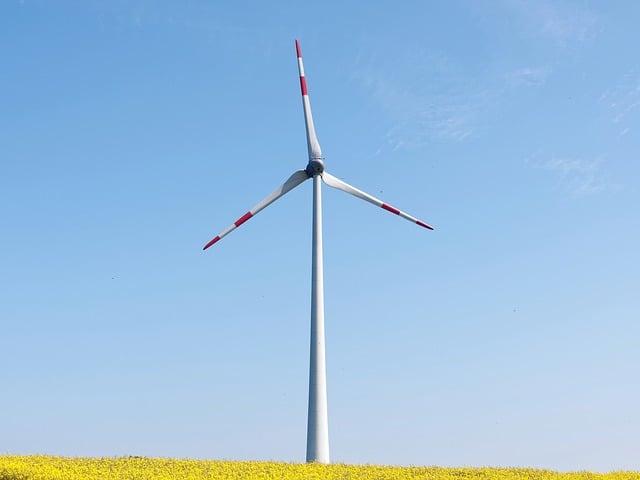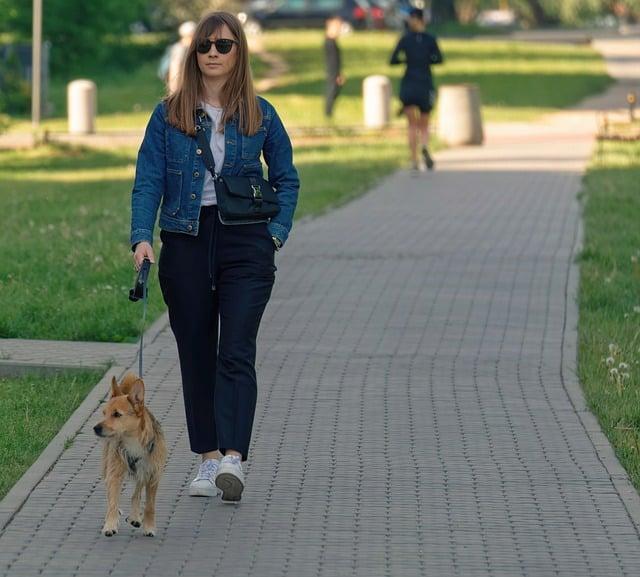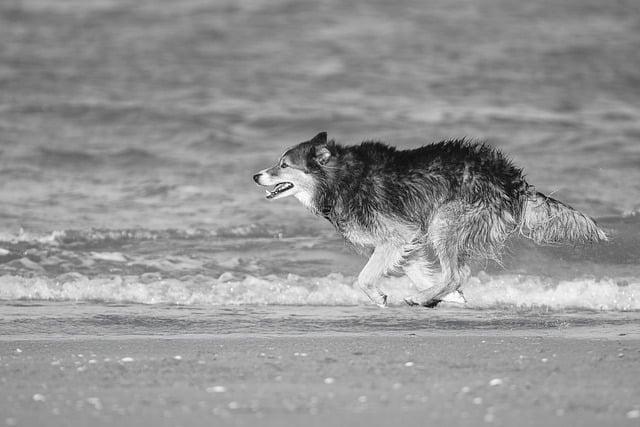Meet Max, the ultimate low-energy dog. A gentle giant of a Great Dane, he spends his days lounging on the couch, basking in sunbeams, and enjoying leisurely strolls around the block. While other dogs chase balls and bark at squirrels, Max prefers the art of relaxation. His calm demeanor makes him the perfect companion for busy professionals or families seeking a serene pet. If you’re looking for a furry friend who will happily nap by your side, Max, the low-energy dog, is your ideal match. Embrace tranquility with a dog like him!
Contents
- Understanding Low Energy Dog Breeds for a Relaxed Lifestyle
- Key Characteristics of Low Energy Dogs and Their Benefits
- Top Low Energy Dog Breeds for Families and Individuals
- Essential Care Tips for Maintaining a Happy Low Energy Companion
- Q&A
Understanding Low Energy Dog Breeds for a Relaxed Lifestyle
When considering a canine companion that aligns with a more laid-back lifestyle, it’s essential to explore breeds known for their low energy levels. These dogs often require less exercise and are perfectly content to lounge around the house, making them ideal for individuals or families who prefer a more relaxed atmosphere. Understanding the characteristics of these breeds can help you make an informed decision that suits your lifestyle.
Some of the most notable low energy breeds include:
- Basset Hound: Known for their droopy ears and laid-back demeanor, Basset Hounds are affectionate and enjoy short walks followed by long naps.
- Shih Tzu: This toy breed thrives on companionship and is perfectly happy with moderate playtime and plenty of cuddle sessions.
- Bulldog: With their stocky build and calm nature, Bulldogs are known for their love of lounging and require minimal exercise.
- Chow Chow: These fluffy companions are independent and prefer a relaxed environment, making them suitable for quieter households.
Low energy dog breeds often exhibit a calm temperament, which can be a significant advantage for those who may not have the time or energy for rigorous daily activities. Their relaxed nature allows them to adapt well to apartment living or homes with limited outdoor space. Furthermore, these breeds typically have lower exercise requirements, which can lead to a more manageable routine for busy individuals or families.
Choosing a low energy dog can also contribute to a more peaceful home environment. These breeds tend to be less prone to hyperactivity and destructive behaviors, allowing for a harmonious coexistence with their human companions. By selecting a breed that matches your lifestyle, you can enjoy the companionship of a dog without the added stress of high energy demands, ultimately enhancing your quality of life.
Key Characteristics of Low Energy Dogs and Their Benefits
Low energy dogs are often characterized by their calm demeanor and relaxed lifestyle. These breeds typically exhibit a few key traits that make them ideal companions for those seeking a more laid-back pet. **Gentleness** is a hallmark of low energy dogs; they tend to be patient and tolerant, making them excellent choices for families with children or other pets. Additionally, their **affectionate nature** means they thrive on human interaction, often forming strong bonds with their owners.
Another defining characteristic is their **minimal exercise needs**. Unlike high-energy breeds that require extensive daily workouts, low energy dogs are perfectly content with short walks or leisurely play sessions. This makes them suitable for individuals or families with a more sedentary lifestyle, as they can adapt to various living situations, including apartments or homes without large yards. Their low exercise requirements also mean they are less likely to engage in destructive behaviors due to boredom.
Moreover, low energy dogs often possess a **calm temperament** that can contribute to a peaceful home environment. Their relaxed nature can help reduce stress levels for their owners, providing a soothing presence that is particularly beneficial for those dealing with anxiety or other mental health issues. This tranquility can also be advantageous in multi-pet households, as these dogs are generally more adaptable and less likely to instigate conflicts.
the **longevity** of low energy breeds is another appealing aspect. Many of these dogs tend to have fewer health issues related to overexertion or stress, leading to a longer, healthier life. This not only means more years of companionship but also less financial strain on owners when it comes to veterinary care. Choosing a low energy dog can be a rewarding decision, offering both emotional and practical benefits for those who appreciate a more relaxed canine companion.
Top Low Energy Dog Breeds for Families and Individuals
When considering a canine companion that thrives in a relaxed environment, several breeds stand out for their low energy levels. These dogs are perfect for families and individuals who prefer a more laid-back lifestyle, offering companionship without the need for extensive exercise. Here are some breeds that exemplify this gentle demeanor:
- Basset Hound: Known for their droopy ears and soulful eyes, Basset Hounds are affectionate and easygoing. They enjoy leisurely strolls and are content to lounge around the house, making them ideal for families with a relaxed pace.
- Shih Tzu: This small breed is not only adorable but also has a calm temperament. Shih Tzus love to cuddle and are perfectly happy with short walks and plenty of indoor playtime, making them great companions for individuals and families alike.
- Bulldog: Bulldogs are known for their distinctive wrinkled faces and stocky build. They are incredibly loyal and enjoy a slow-paced lifestyle, requiring minimal exercise. Their affectionate nature makes them wonderful family pets.
- Great Dane: Surprisingly, despite their size, Great Danes are gentle giants. They are known for their calm demeanor and love to lounge around the house. A few short walks each day are sufficient to keep them happy and healthy.
In addition to their low energy levels, these breeds often exhibit a friendly and loving nature, making them excellent choices for families with children or individuals seeking companionship. Their laid-back personalities allow them to adapt well to various living situations, whether in a bustling household or a quiet apartment. The bond formed with these dogs can be incredibly rewarding, as they thrive on affection and companionship.
Choosing a low energy dog breed can significantly enhance your quality of life, especially if you prefer a more tranquil home environment. These breeds not only require less physical activity but also tend to be less demanding in terms of training and socialization. This makes them suitable for first-time dog owners or those with busy lifestyles who still want the joy of having a pet.
Ultimately, the right low energy dog can bring immense joy and comfort to your life. By selecting a breed that aligns with your lifestyle, you can ensure a harmonious relationship that benefits both you and your furry friend. Embrace the tranquility that comes with these gentle companions, and enjoy the unique bond that develops over time.
Essential Care Tips for Maintaining a Happy Low Energy Companion
When it comes to caring for a low energy dog, understanding their unique needs is crucial for ensuring their happiness and well-being. These gentle companions thrive in calm environments, so creating a serene space at home is essential. Consider providing a cozy bed in a quiet corner where they can retreat and relax. Additionally, keeping their living area free from excessive noise and chaos will help them feel secure and content.
Regular, gentle exercise is vital for maintaining your dog’s physical and mental health. While they may not require vigorous activity, short, leisurely walks can stimulate their senses and provide essential socialization. Aim for 15-30 minute walks a couple of times a day, and incorporate playtime with soft toys to keep them engaged without overwhelming them. Remember, the goal is to keep their energy levels balanced while ensuring they enjoy their time outdoors.
Nutrition plays a significant role in your dog’s overall energy levels and mood. Opt for high-quality dog food that meets their specific dietary needs, focusing on ingredients that promote health without causing hyperactivity. Consult with your veterinarian to determine the best diet plan, and consider incorporating healthy treats that can be used for training or rewarding good behavior. Proper hydration is equally important, so always ensure fresh water is available.
Lastly, mental stimulation is key to keeping your low energy companion happy. Engage them with puzzle toys or interactive games that challenge their minds without requiring too much physical exertion. Simple training sessions can also be beneficial, as they provide mental engagement and strengthen the bond between you and your dog. By prioritizing their mental and emotional needs, you’ll create a fulfilling environment that enhances their quality of life.
Q&A
-
What breeds are considered low energy dogs?
Some of the most popular low energy dog breeds include:
- Bulldog
- Basset Hound
- Shih Tzu
- Pug
- Chow Chow
These breeds are known for their calm demeanor and relaxed lifestyle, making them ideal companions for those who prefer a quieter home environment.
-
How much exercise do low energy dogs need?
Low energy dogs typically require less exercise than their more active counterparts. Most of these breeds benefit from:
- Short daily walks (15-30 minutes)
- Playtime in a secure yard
- Interactive indoor games
This minimal exercise requirement makes them suitable for apartment living and for owners with a more sedentary lifestyle.
-
Are low energy dogs suitable for families?
Yes, low energy dogs can be excellent family pets. Their calm nature often makes them:
- Great with children
- Less likely to exhibit hyperactive behavior
- More adaptable to various living situations
Families looking for a gentle and loving companion will find that low energy dogs can provide the perfect balance of affection and tranquility.
-
What are the benefits of owning a low energy dog?
Owning a low energy dog offers several advantages, including:
- Lower exercise demands, saving time and effort
- Reduced risk of behavioral issues related to excess energy
- Comforting presence that promotes a peaceful home atmosphere
These benefits make low energy dogs an appealing choice for many pet owners seeking companionship without the high activity level.
choosing a low-energy dog can enhance your lifestyle and provide companionship without the demands of high activity. Consider breeds like the Bulldog or Basset Hound for a perfect match. Embrace a calmer, more fulfilling pet experience today!

大家好,我是彼得潘,專業的手法身體治療師。我喜歡探索和研究各種主題,並透過與人工智慧的合作分享專業、實用、有趣的文章。我們定期進行人工審核,以確保內容的準確性。如果您發現文章中有任何不準確的地方,請隨時與我們聯繫,我們會及時糾正。您可以透過 [email protected] 與我們聯繫。



